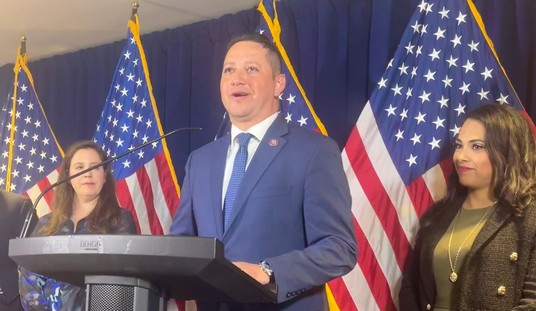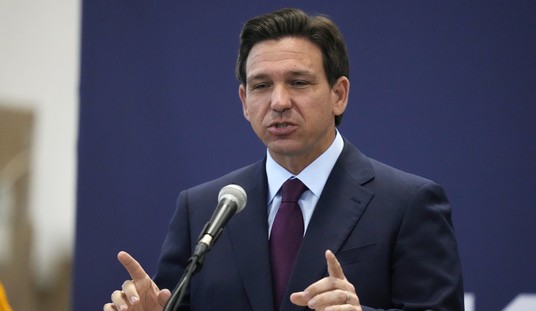
Most days, being a lawyer isn’t all it’s cracked up to be, but sometimes, it can almost be cool. Like when the local Bar Association’s Law Day features Justice Clarence Thomas as its keynote speaker, as was the case this past Friday in St. Louis.
Justice Thomas was introduced by his longtime friend and mentor, Jack Danforth. I’ll be quite honest: Given his tenure on the Supreme Court for the past 25+ years, I’d forgotten that Thomas started his legal career in Missouri, first as an Assistant Attorney General for Danforth, and then, in private practice for Monsanto, here in St. Louis.
Justice Thomas made a point to keep his remarks fairly brief. Since he’s often known (and sometimes mocked) for his reticence, this made me all the more intrigued by what he might say – he didn’t disappoint. The overriding theme of his message was Liberty (with a capital “L.”)
He noted how many of the rights and liberties we enjoy here in the United States are ones to which we give very little thought. We travel freely, worship freely, express ourselves freely (which isn’t to say always wisely.) The advent of social media has vastly expanded our opportunity and ability to share our views on just about anything. It has also highlighted the many things on which we disagree. But, Justice Thomas observed, there are some principles upon which most all agree. For instance, not a one of us thinks the national government should have unlimited power. We differ, however, as to the arenas and extent in which we contend it should exercise its power.
Unfortunately, I didn’t note whether he was quoting someone with this, or simply sharing it as a principle or belief he embraced, but he asserted that we have no authority over fellow citizens except where provided in duly elected law. If, Justice Thomas points out, we are all created equal then no man may rule over another. The only authority by which men may govern is via consent of the governed.
He then employed an example to which I could easily relate: HGTV. Regardless of the show, and whether the guests are buying, selling or renovating a home (or all of the above), they invariably hyper-focus on the aesthetic details: an open concept, marble or granite countertops, high-end appliances. And, invariably, during the purchase and/or renovation process, they are met with some sort of major, structural obstacle which then impacts their ability to have all of their wants met. The disappointment is often profound but inevitably comes the acknowledgment that they must address the structural issues before attending to the aesthetics.
In similar fashion, Justice Thomas posits, the Amendments to our Constitution (particularly the Bill of Rights) attract a disparate measure of attention versus the structural protections contained within the Constitution itself – the separation of powers, the checks and balances, the amendment process. These protections are the “good bones” of our republic, and their precipitating concern is liberty.
He cited Federalist No. 51, one of Madison’s finest and most cited contributions:
“But the great security against a gradual concentration of the several powers in the same department, consists in giving to those who administer each department the necessary constitutional means and personal motives to resist encroachments of the others. The provision for defense must in this, as in all other cases, be made commensurate to the danger of attack. Ambition must be made to counteract ambition. The interest of the man must be connected with the constitutional rights of the place. It may be a reflection on human nature, that such devices should be necessary to control the abuses of government. But what is government itself, but the greatest of all reflections on human nature? If men were angels, no government would be necessary. If angels were to govern men, neither external nor internal controls on government would be necessary. In framing a government which is to be administered by men over men, the great difficulty lies in this: you must first enable the government to control the governed; and in the next place oblige it to control itself. A dependence on the people is, no doubt, the primary control on the government; but experience has taught mankind the necessity of auxiliary precautions.”
He didn’t go political, nor did he hold forth at length. Just made a sound and solid case for Liberty. Then, with a nod to his early career and his audience, he concluded, “Thank you, God bless you, and go, Blues!”*
*At least they took heed on Friday. Sunday…not so much.













Join the conversation as a VIP Member